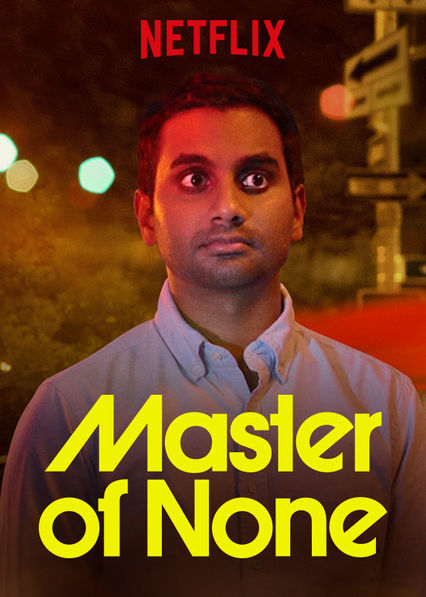Master of None feels like the television version of Aziz Ansari's brilliant book, Modern Romance. While the book dissected the evolving nature of romance in the modern era, Master of None uses each episode to examine different sociological phenomena in the 21st century. While extremely funny, this show is also insanely incisive, featuring a bold look at daily life that hits on hilarious and uncomfortable truths.
"Plan B," the first episode of the show, is probably its most conventional. We are introduced to Dev (Ansari), an Indian-American actor who lives in New York City. In the first five minutes he has slept with a woman named Rachel (Noel Wells) and taken her to the pharmacy to buy Plan B. Needless to say, that is not a great date. We are then introduced to his friends, which include an Asian man, Brian (Kelvin Yu), a black lesbian, Denise (Lena Waither), and the "token white friend," Arnold (Eric Wareheim). Already, this is more diversity than you get on your standard network television show. The episode involves Dev going to his friend's kid's birthday party, then having to babysit another friend's kids, and is a typical rumination on the perils and rewards of having children. It's funny, but not revolutionary. But then we get the second episode, "Parents." We are introduced to Brian's father and Dev's parents (played by Ansari's real-life parents). The episode features flashbacks of Dev's father's childhood in India and Brian's father's childhood in Taiwan, two poverty-stricken tales that contrast sharply with the life of relative indolence they have been able to provide their American-born sons. It's a poignant but funny examination of the first-generation experience and announces that Master of None has many interesting and perplexing things to explore over the course of its first season.
While "Parents" was probably my personal favorite, most people tout the show's fourth episode, "Indians on TV," as its masterpiece. In it, we get a full treatise on Hollywood's diversity problem, the shady calculations that go on in the executive suite when making casting decisions, and the casual racism that Indian actors face when they go in for auditions. Dev is tired of always playing cab drivers and convenience store clerks, and he has to take a principled stand about doing a fake Indian accent. And he is extremely annoyed that a show can only feature one Indian guy, because apparently audiences can't handle two at the same time. It's a funny but sad look at how brown people are still treated by Hollywood in 2015.
Despite its short 10-episode season, Master of None manages to represent a vast swathe of humanity. There's the beautiful "Old People" where Dev spends time with his girlfriend's grandmother and discovers what it means to be an old person who led a decent life but still has thwarted dreams and ambitions. There's the "Ladies & Gentlemen" episode (directed by the wonderful Lynn Shelton) that serves as a commentary on the different ways in which women and men are treated and how men are oblivious to the very real threats, snubs, and unconscious biases that women face on a daily basis. Some of the dialogue can feel a bit earnestly heavy-handed, but for the most part, Master of None cleverly walks the tightrope between comedy and sincerity, shining a spotlight on the absurdities of daily life and gently nudging us out of complacency. It is also very romantic, with "Nashville," a charming episode about Dev's first successful date with the woman of his dreams, and later, "Mornings," which traces a year in that relationship, charting the passionate beginning, the comfortable companionship, and the inevitable arguments.
Co-created by Aziz Ansari and Alan Yang, Master of None showcases the phenomenal stories you get when you make a show about people with diverse backgrounds and viewpoints. It is a worthy addition to your Netflix queue, and while it is supremely easy to binge watch in five hours, I guarantee there will be episodes you will return to multiple times, to steep in their audacity and cleverness. Even if this show features people who don't look like you, it speaks universal truths that almost anyone can recognize. Thanks to its structure and wholesale tackling of different topics, there's at least one episode that will make you sit up and take notice. This isn't really a show that needs to be watched in order, and it has become my favorite past time to recommend particular episodes to particular people as the ideal starting point. So hop on the couch and settle in for some quality television. You're in for a real treat.

No comments:
Post a Comment